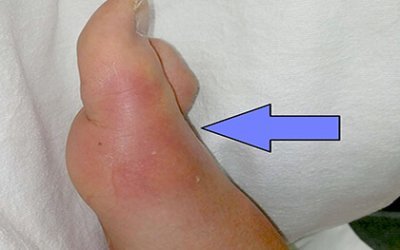Know Simple Home Remedies To Manage Cough And Cold

Welcome to our health corner, where we dive into the ins and outs of the common cold and cough – those annoying things that show up when we least want them. We’re here to help you figure out what causes these sniffles and sneezes, what could go wrong, and how to handle it all.
In this handy guide, we’ll talk about why we get these coughs and colds, look into possible problems, and share down-to-earth tips to manage them better. But don’t worry – it’s not all bad news! We’ll also spill the beans on easy home remedies to help you feel better.
Whether you’re dealing with a stubborn cough or just trying to stay healthy, come along as we uncover the secrets of coughs and colds. Let’s learn together and find simple solutions for a healthier, happier you.
Complications of Cough and Cold:
We’ve all been there – the irritating sniffles and persistent coughs that come with a common cold. While most of us ride out these nuisances with a hot cup of tea and some rest, it’s crucial to be aware that sometimes, these seemingly harmless bugs can bring along a few unwanted friends – complications.
1. Respiratory Infections: One of the main complications tied to colds is the risk of respiratory infections. When the cold virus infiltrates your upper respiratory tract, it can pave the way for bacteria to sneak in, leading to conditions like bronchitis or pneumonia. Keep an eye out for symptoms like prolonged coughing, difficulty breathing, or chest pain, as these could signal a more serious issue.
2. Ear Infections: Especially common in children, colds can sometimes lead to ear infections. The congestion and mucus associated with a cold can block the Eustachian tubes, creating a breeding ground for bacteria. Keep an ear out (no pun intended) for signs like ear pain, fluid drainage, or trouble hearing, as these may indicate an infection that needs attention.
3. Sinusitis: Your sinuses, those air-filled pockets in your face, can also bear the brunt of a cold. When they become inflamed, it can result in sinusitis. This can cause facial pain, headaches, and a stuffy or runny nose that lasts longer than the typical cold symptoms. If your cold seems to be overstaying its welcome with these additional discomforts, sinusitis might be the culprit.
4. Exacerbation of Chronic Conditions: For individuals with pre-existing conditions like asthma or chronic obstructive pulmonary disease (COPD), a common cold can trigger flare-ups. The increased inflammation and mucus production can make breathing even more challenging for those already dealing with respiratory issues.
5. Complications in Vulnerable Populations: Certain populations, such as young children, the elderly, or individuals with weakened immune systems, are more susceptible to severe complications from a cold. Vigilance is key in these cases, and seeking medical attention promptly is crucial if symptoms take a turn for the worse.
While the majority of colds resolve on their own with proper care, it’s essential to be aware of potential complications, especially if symptoms persist or worsen. If you notice anything out of the ordinary or if you fall into a high-risk category, consulting with a healthcare professional can provide guidance on the best course of action.
Common Causes of Cough and Cold:
1. Viral Intruders: The primary suspect in the cold and cough saga is often the rhinovirus. This tiny troublemaker belongs to a family of viruses that thrive in the nose and throat. When someone with a cold sneezes or coughs, these viruses can hitch a ride on droplets in the air, ready to infiltrate unsuspecting hosts.
2. Coughing Culprits: Coughs often have their own set of accomplices, including influenza (flu) viruses and respiratory syncytial virus (RSV). These viruses target the respiratory system, causing irritation and triggering the body’s natural defense mechanism – coughing. So, if you find yourself coughing up a storm, these viral partners might be the ones calling the shots.
3. Sudden Temperature Drops: Ever notice how colds seem more prevalent during chilly seasons? It’s not just a coincidence. Cold weather doesn’t directly cause colds, but it can create conditions that favor virus survival and transmission. Add in crowded indoor spaces during colder months, and you’ve got a recipe for increased viral activity.
4. Hand-to-Hand (or Nose) Transmission: Viruses love to hitch a ride on our hands. Touching a surface or object with the cold virus on it, then touching our face, especially the nose or mouth, is a common transmission route. This is why proper hand hygiene, like frequent handwashing, becomes a superhero move in preventing these microscopic villains from making their way into our system.
5. Weakened Immune Defenses: When our immune system is not at its A-game, it provides an open invitation for cold and cough viruses to set up shop. Stress, lack of sleep, and poor nutrition can all contribute to a weakened immune defense, making us more susceptible to these invaders.
6. Close Encounters: Being in close contact with someone who has a cold or cough is like giving these viruses a VIP pass to jump from one person to another. Whether it’s a handshake, a hug, or even a shared space, the proximity to someone harboring these viral intruders increases the risk of catching a cold.

Management Strategies:
Before all, It is recommended to maintain a healthy immune system by committing to a healthy diet, consisting of herbs, green vegetables, fruits, and essential spices in moderate quantities. Besides this, here are some of the managing tips.
1. Rest and Power Up Your Recovery: When the sniffles strike, your body needs extra energy to fend off those pesky invaders. Embrace the healing power of rest by getting plenty of sleep. It’s your body’s way of recharging and directing its energy toward battling the cold or cough.
2. Stay Hydrated: Think of hydration as your secret weapon against the common cold. Warm beverages like herbal tea, chicken soup, or even just hot water with lemon can help soothe a sore throat and keep you hydrated. Adequate fluids also help thin mucus, making it easier to expel.
3. Humidity and Steamy Solutions: Dry air can worsen nasal congestion, but fear not – humidity is here to save the day. Use a humidifier to add moisture to the air, creating a more comfortable environment for your irritated respiratory passages. Alternatively, a steamy shower can also provide relief.
4. Soothing the Throat: If a scratchy throat is bringing you down, turn to the natural sweetness of honey. Mix it with warm water or tea for a soothing drink. Holy Basil (Tulsi), ginger and turmeric also help ease the irritation, providing comfort to your sore throat.
5. Use Garlic and Ginger: Incorporate garlic and ginger into your diet for an extra punch against cold symptoms. These kitchen superheroes boast antiviral and immune-boosting properties. Whether in soups, teas, or as part of your meals, these ingredients can be your allies in the battle for wellness.
6. Nasal Rinses: Nasal saline rinses can be a game-changer in managing nasal congestion. This simple solution helps flush out mucus and irritants from your nasal passages, offering relief from that stuffy feeling.
7. Prevention is Key: The best offense is a good defense. Strengthen your immune system with a balanced diet, regular exercise, and proper hydration. Wash your hands regularly, avoid close contact with sick individuals, and consider getting a flu shot for an added layer of protection.
Exploring Herbal Remedies
Clove: Chewing a clove with a crystal of common salt eases expectoration, relieves the irritation in the throat, and stops cough in pharyngitis, which is inflammation of the pharynx. Chewing a roasted clove is also an effective medicine for coughs caused by congested throat and pharyngitis.
Three to five drops of clove oil mixed with a few drops of honey and a minced clove of garlic helps alleviate the painful spasmodic coughs in tuberculosis, asthma, and bronchitis. It should be taken once daily before bed.
Ginger: The herb is an excellent remedy for coughs and colds. Extracted juice of ginger with honey is taken three or four times a day in case of coughs.
In case of colds, ginger is cut into small pieces, is boiled in a cup of water. After straining, with half a teaspoon of sugar, it should be taken hot.
Ginger tea, prepared by adding a few pieces of ginger into boiled water before adding tea leaves, is another effective remedy for frequent colds and associated fevers. Know more about Ginger remedies
Turmeric: Turmeric, with its antiseptic properties, is an effective remedy for chronic cough and throat irritations. Half a teaspoon of fresh turmeric powder, mixed in 30 ml of warm milk is very effective in these conditions. To prepare this milk is poured on a hot ladle with turmeric in it and boiled over a slow flame. In case of a cold, smoke from burning turmeric can be inhaled. This increases the discharge from the nose and brings quicker relief.
Turmeric, in combination with caraway seeds or ajwain, is useful for Colds in infants and children. A teaspoon of turmeric powder and a quarter teaspoon of caraway seeds are added to boiling water which is then cooled. About 30 ml of this decoction, sweetened with honey, may be taken thrice a day in treating such conditions
Black Pepper: pepper is an effective remedy for coughs due to throat irritation. Three corns of pepper can be chewed with a pinch of caravan seeds and a crystal of common salt provide relief.
Garlic: Garlic is an excellent remedy for whooping cough. Syrup of garlic should be taken in doses of five drops to a teaspoon, two or three times a day in treating whooping cough. It should be given more often if the coughing spells are frequent and violent. Know more about Garlic remedies.
Aloe vera: Roast the leaf and extract the juice. Take half a teaspoon in one cup of warm water. Know more about aloe vera remedies.
Always remember that the effectiveness of herbal remedies can vary, and individual responses may differ. It’s crucial to consult with your healthcare provider before trying any herbal supplements, especially if you are taking medications or have pre-existing health conditions. Additionally, herbal remedies should be used as part of a comprehensive treatment plan that includes proper medical care, lifestyle modifications, and medication adherence.
References
- Mahmoud S. Al-Haddad PhD, Qasem M. Abdallah PhD, Abdulrahman H. Alhamyani Pharm D., Abdullah J. Althomali Pharm D., Sami M. Alshakhshir M. Pharm. (2016) General public knowledge and practices about the common cold. Journal of Taibah University Medical Sciences. View
- Woo-Jung Song, Yoon-Seok Chang, Shoaib Faruqi, Ju-Young Kim, Min-Gyu Kang, Sujeong Kim, Eun-Jung Jo, Min-Hye Kim, Jana Plevkova, Heung-Woo Park, Sang-Heon Cho, Alyn H. Morice. (2015) The global epidemiology of chronic cough in adults: a systematic review and meta-analysis. European Respiratory Journal. View
- H.K.Bakhru (1992) Herbs That Heal: Natural Remedies for Good Health. Orient Paperbacks. Delhi, India.
- T.V.Sairam (1999) Home Remedies Vol-II: A Handbook of Herbal Cures for Common Ailments. Penguin Books India.
Dos
Stay Hydrated:
Do drink plenty of fluids, including water, herbal teas, and broths. Hydration helps soothe your throat and keeps you feeling better.
Rest and Recover:
Do get ample rest. Allow your body the time it needs to heal by taking it easy and prioritizing sleep.
Hand Hygiene:
Do wash your hands regularly with soap and water. Good hand hygiene is a simple yet powerful way to prevent the spread of germs.
Cover Your Coughs and Sneezes:
Do cover your nose and mouth when sneezing or coughing. Use a tissue or the inside of your elbow to prevent spreading germs.
Eat Nutrient-Rich Foods:
Do consume a balanced diet rich in fruits, vegetables, and whole grains. These provide essential nutrients to support your immune system.
Humidify Your Space:
Do use a humidifier to add moisture to the air, especially in dry environments. This can help ease nasal congestion and promote better breathing.
Over-the-Counter Medications:
Do consider over-the-counter medications with the guidance of a healthcare professional. They can help alleviate specific symptoms.
Don’ts
Avoid Overexertion:
Don’t overexert yourself. Allow your body the time it needs to rest and recover; avoid strenuous activities.
Skip Smoking and Secondhand Smoke:
Don’t smoke, and steer clear of secondhand smoke. Smoking can worsen respiratory symptoms and hinder recovery.
Avoid Antibiotics for Viral Infections:
Don’t request antibiotics for viral infections like the common cold. Antibiotics are ineffective against viruses.
Limit Alcohol and Caffeine:
Don’t overindulge in alcohol or caffeine. Both can contribute to dehydration, which may worsen symptoms.
Avoid Touching Your Face:
Don’t touch your face unnecessarily, particularly your eyes, nose, and mouth. This helps prevent the spread of germs.
Steer Clear of Shared Utensils:
Don’t share utensils, cups, or towels with others, especially when you’re unwell. Minimize the risk of spreading germs.
Don’t Ignore Persistent Symptoms:
Don’t ignore symptoms that persist or worsen. If your condition doesn’t improve or if you have underlying health concerns, seek advice from a healthcare professional.
Send Us A Message
FAQs
- You can relieve your cough and cold symptoms with home remedies such as staying hydrated, using a humidifier, gargling with salt water, inhaling steam, consuming warm beverages, and resting.
- See a doctor if your symptoms persist for more than 10 days, if you have a high fever, if you have trouble breathing, or if you notice unusual symptoms such as chest pain or wheezing. Seek medical attention for children and elderly people if their symptoms seem severe.
- A typical cold can last anywhere from 7 to 10 days. Symptoms may be more severe in the first few days and gradually improve. If your symptoms persist for more than 10 days or worsen, you should consult a healthcare provider.
- Yes, certain foods and drinks can help relieve symptoms. Warm teas, such as chamomile, ginger, or peppermint tea, can soothe a sore throat and help with congestion. Honey and lemon in warm water can also provide relief for a cough. Consuming foods rich in vitamin C and other nutrients may help boost your immune system.














